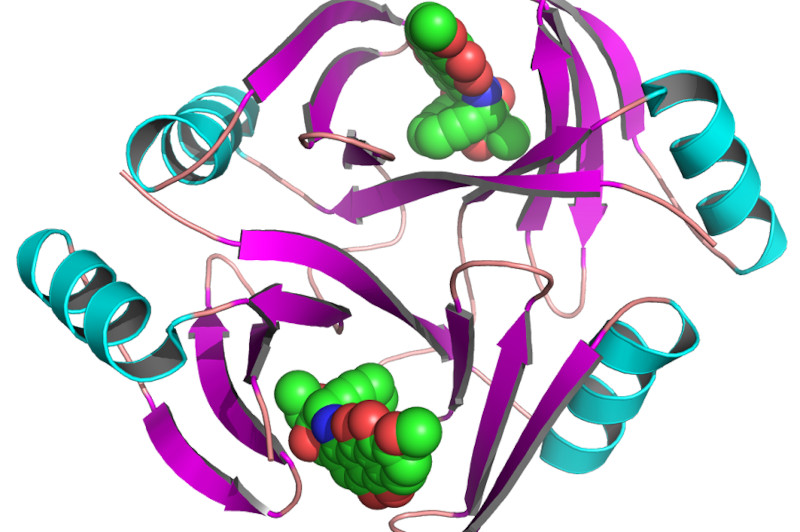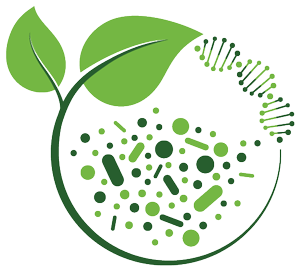Potent Bacteria
08/21/2018

The crystal structure of the tnmS3 gene in complex with tiancimycin, a natural product that holds promise for new cancer drugs. The gene encodes proteins that allow bacteria to resist the effects of tiancimycins. [Image by Argonne National Laboratory.]
A collaboration of scientists from the U.S. Department of Energy’s (DOE) Argonne National Laboratory has found a special strain of soil bacteria that protects itself from other organisms by producing highly toxic compounds and confining them to a “molecular dungeon.” Unusual properties of the enediyne compound include acting as powerful antitumor agent or antibiotic, but the researchers discovered that this family of soil bacteria also produces a tightly bound protein that sequesters the toxic compound from the rest of the organism. The study has implications for cancer treatment and understanding how human cancer cells develop resistance to natural product–based chemotherapies.
Related Links
- BER Resource: Structural Biology Center
- Feature Story: A soil bacterium produces compounds highly toxic to other organisms but not itself
References
Chang, C.-Y., et al. 2018. “Resistance to Enediyne Antitumor Antibiotics by Sequestration,” Cell Chemical Biology 25(9), 1075–85. [DOI:10.1016/j.chembiol.2018.05.012]
